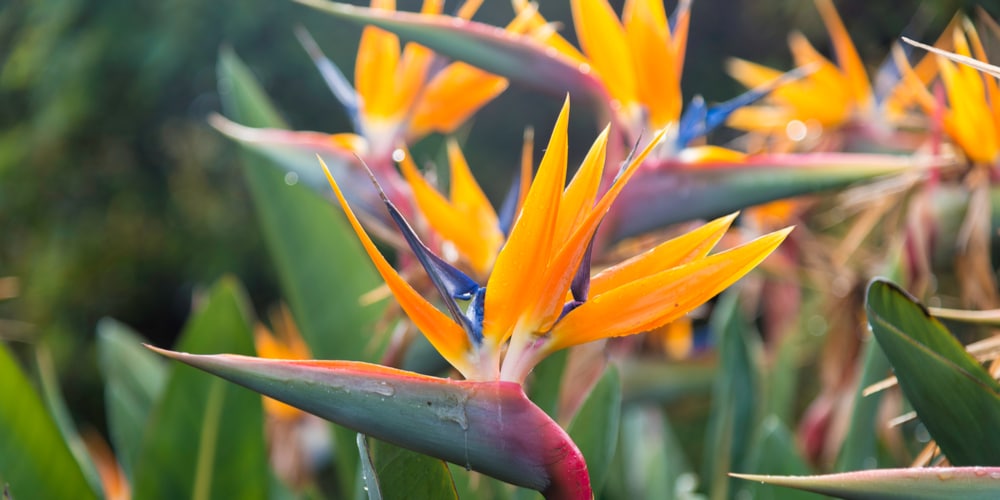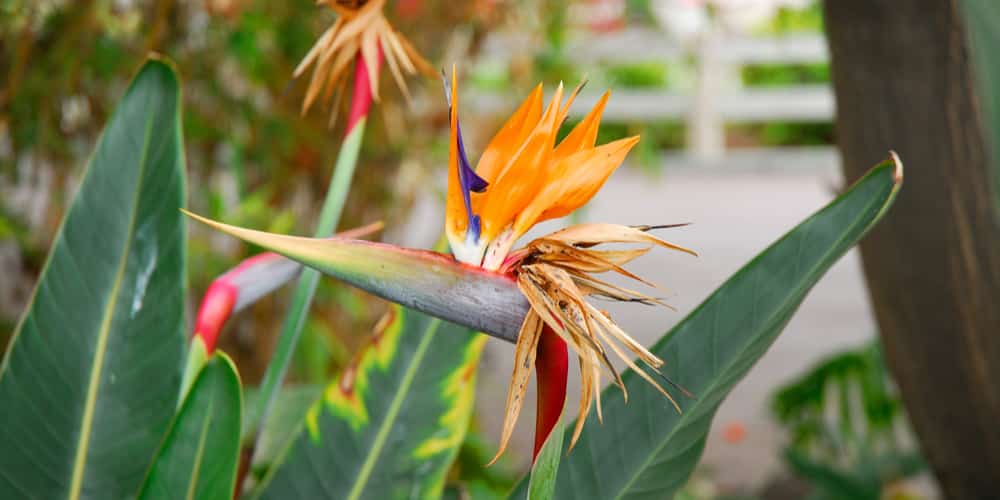With their bright colors and unusual shapes, the bird of paradise indeed produces vibrant, eye-catching flowers. These lovely, tropical plants are native to the coastal areas of South Africa and cultivated worldwide by horticulturists, florists, and gardeners.
While the bird of paradise is a beautiful plant, it is unfortunately toxic to cats if they consume the leaves or flowers. Thankfully, it’s not generally life-threatening; however, it can still cause stomach upset, vomiting, and diarrhea in our feline friends. So if you share your home with both a bird of paradise and a cat, keep an eye on your kitty to ensure they don’t munch on the plant.
How Toxic Is Bird of Paradise to Cats?
The bird of paradise is considered mildly toxic to cats when ingested because of the gastrointestinal (GI) irritants found in the leaves, flowers, and seeds. The leaves contain hydrocyanic acid, which can cause dizziness and nausea. In addition, the flowers and seeds contain tannins known to cause further GI upset.
The good news is that these tannins produce a bitter taste that’s often enough to deter most cats from eating the plant. However, we all know they’re sometimes too curious for their own good.
While together, these only create a mildly toxic reaction in cats, and it’s not generally considered life-threatening. The more significant concern is the dehydration and loss of appetite that comes with vomiting and diarrhea. If your cat ingests part of the bird of paradise, watch them closely for symptoms and contact your veterinarian if they persist.
Symptoms of Bird of Paradise Poisoning in Cats
The symptoms of bird of paradise poisoning in cats are typically mild digestive issues such as vomiting and diarrhea. While this plant is not considered highly toxic, it can still cause discomfort for your cat if they help themselves to even a small amount.
If you notice your cat displaying any of the following symptoms after consuming the bird of paradise, assume it’s a case of poisoning and take them to the vet immediately:
- Vomiting
- Diarrhea
- Abdominal pain
- Loss of appetite
- Drooling
- Drowsiness
- Disorientation
While the symptoms of bird of paradise poisoning in cats are usually not severe, it’s always wise to seek medical help if you believe your cat has consumed any part of this plant.
Treating Bird of Paradise Poisoning in Cats
If you discover your cat has ingested the bird of paradise, first call your veterinarian or local animal hospital. They will likely encourage you to bring your cat in for a physical examination to determine the severity of their symptoms and the type of treatment they require.
In most cases, bird of paradise poisoning in cats is treated with symptomatic care. Your veterinarian will likely give your cat IV fluids to prevent dehydration from vomiting and diarrhea. They may also provide them with medication to control their nausea and diarrhea.
Even if your cat is displaying only mild symptoms, you should refrain from attempting to treat your kitty yourself at home. Instead, the safest action is always to contact a professional who can give you specific instructions on caring for your cat.
Conclusion
Is bird of paradise toxic to cats? Yes. While the bird of paradise is a beautiful plant, owners should know that it’s toxic to cats if ingested. The good news is that the toxicity level is only considered mild, and most cats will recover without any serious complications.
However, it’s still vital to keep an eye on your kitty if you have a bird of paradise at home and to contact your veterinarian immediately if you suspect they’ve eaten any part of it.


